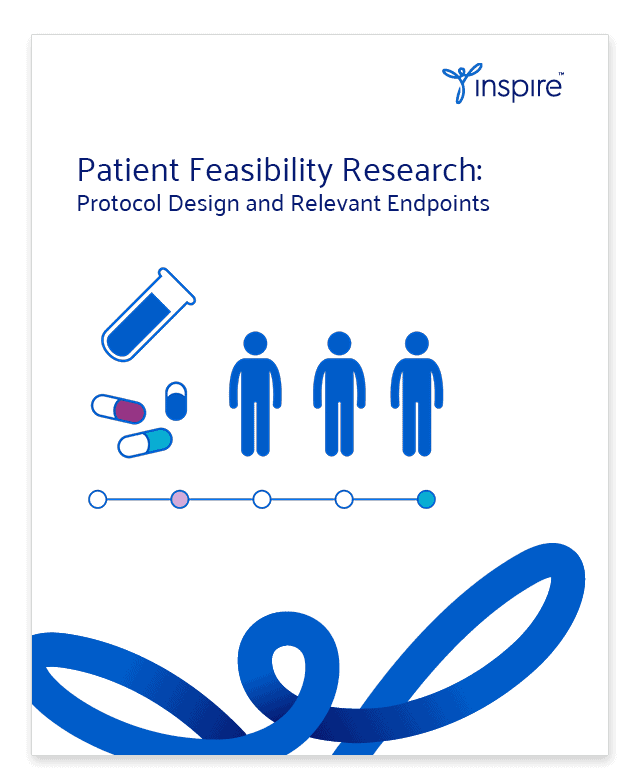Good News about Lung Cancer? Thanks to Bench Science and Pharma

By Kathleen Hoffman, PhD, MSPH
Targeted therapies, monoclonal antibodies, and immune checkpoint inhibitors are the good news – making a significant difference in lung cancer mortality, a new study states. Published in The New England Journal of Medicine, the report said, “Mortality from NSCLC decreased even faster than the incidence …and this decrease was associated with a substantial improvement in survival over time that corresponded to the timing of approval of targeted therapy.” 1Posts and reassurances that people read while visiting the American Lung Association’s Lung Cancer Survivors Support Group on Inspire describe the effect of this good news on people’s lives.
I was recently diagnosed with lung cancer which has spread to my liver and bone. I am currently on targeted therapy which seems to be working. I am a non smoking _[age]_, _[gender]_, this has been a shock to myself and my family. I am afraid and I am looking for support from others who are living with this same situation.
Members responded,
this group has been very helpful and supportive. Now on _[targeted therapy]_and my cancer is in remission.
I was diagnosed with stage 4 lung cancer which had spread to my lymph nodes and T2. I am currently on __[targeted therapy]__ which is working for me. I am also a non smoking, _[age]_, _[gender]_. Yes it’s a shock but here I am 14 months on and living & loving life! Keep in touch, we are all in this together!
There most definitely is Hope. This site helped me see there are Many long term survivors.
The study found that across all races and ethnic groups, “lung cancer–specific survival improved from 26% among men with NSCLC that was diagnosed in 2001 to 35% among those in whom it was diagnosed in 2014.” The findings for women are similar.1 Members reiterate this news.
Please know this is not the automatic death sentence it used to be. In October 2010 I was told I had 10-15 months to live. Not everyone can have that outcome but there has been a significant drop in lung cancer deaths and an amazing number of first line treatments approved in the last few months.
“Lung cancer is increasingly being divided into multiple subsets of molecularly defined populations with drugs being developed to target these specific groups,” Dr. Richard Pazdur Director of the FDA’s Oncology Center of Excellence noted when recognizing the spring and summer FDA announcements of several new targeted medications.2 They included capmatinib, which is approved from patients with non-small cell lung cancer (NSCLC) mutations leading to MET exon 14 skipping and pralsetinib and selpercatinib for lung cancers with abnormal RET (rearranged during transfection) genes. Lurbinectedin was also approved for small cell lung cancer.2
Over 175,000 members have shown an interest in lung cancer on Inspire, writing almost one million posts since the group started. There have been many changes in care since then. For example, one member noted that he was diagnosed in 2005 and didn’t know what to ask about testing. A fellow member responded,
When I was first DX in _[date]_, genetic marker testing wasn’t typical – not too surprising that in 2005 no testing was done. If you were told you had a high PD-L1 expression, some mutation testing was done, and that makes you a great candidate for Keytruda (assuming your tests were negative for EGFR and ALK mutations). I would…ask for the printed results of any mutation testings done….
Another member described,
I’m _[age]_and was diagnosed with stage 4 NSCLC in _[date]_, with tumors in both lungs, mets to my adrenals, lymph nodes, and occipital skull bone….When I found my way to my oncologist, I was at death’s door….I was without hope. I wrote out my final will and started looking for a loving home for my dog. Then I found out about keytruda. I had high PDL1 expression, so my doctor believed I would respond, and respond I did.
When new people come to Inspire’s Lung Cancer Survivors Support Group they come with questions,
i was recently diagnosed with a squamous cancer mass on my upper right lung….it is a fairly large mass about _[size]_ . …they found it in the #2 lymph node for that reason they decided not to operate… my question is, is this standard procedure or their own decision. this is a fairly well known hospital for cancer in new york. should i consider getting a second opinion i appreciate any feed back, thanks
And members who have been on the site from the beginning are there to help.
The paratracheal nodes are outside of the lung, in the throat and it is now considered metastatic disease. The involvement of the throat may not have turned up in the staging process because it was too small to register on a PET scan. Once it’s in the lymph system it can travel anywhere.
Standard of Care is to not operate when the cancer has metastasized outside of the lung. Someone here explained it to me that it’s a bit like getting rid of a dandelion. You can dig it out by its roots anytime. When the flower is yellow you can get the whole thing. When the flower has turned to white fluff you can never know how much got away.
They do need to finish genomic testing on your tumor. Actionable mutations are not unheard of in squamous cell, Memorial Sloan Kettering routinely does genomic tests on squamous cell cancer and they might be a really good option for your second opinion. They are very quick about getting patients in for a second opinion.
The help that is available on Inspire, from other members and from partners like the American Lung Association supports thousands of people dealing with frightening diagnoses. The work of scientists in genetics and biochemistry in the pharmaceutical industry is giving hope and increasing survivorship for lung cancer and other deadly diseases. Thanks to those working as bench scientists in colleges and universities and those employed in the pharmaceutical industry.
Inspire offers a trusted community to patients and caregivers. Our goal with this blog, this website and our content is to provide the life science industry access to the true, authentic patient voice. In so doing, we support faithful operationalization of patient-centricity. Take a look at our case studies, eBooks and news outlet coverage.
References:
1Howlander, N.(2020). The Effect of Advances in Lung-Cancer Treatment on Population Mortality.N Engl J Med 2020; 383:640-649 DOI: 10.1056/NEJMoa1916623
2https://www.fda.gov/news-events/press-announcements/fda-approves-first-targeted-therapy-treat-aggressive-form-lung-cancer
3https://ocrahope.org/patients/about-ovarian-cancer/statistics/






